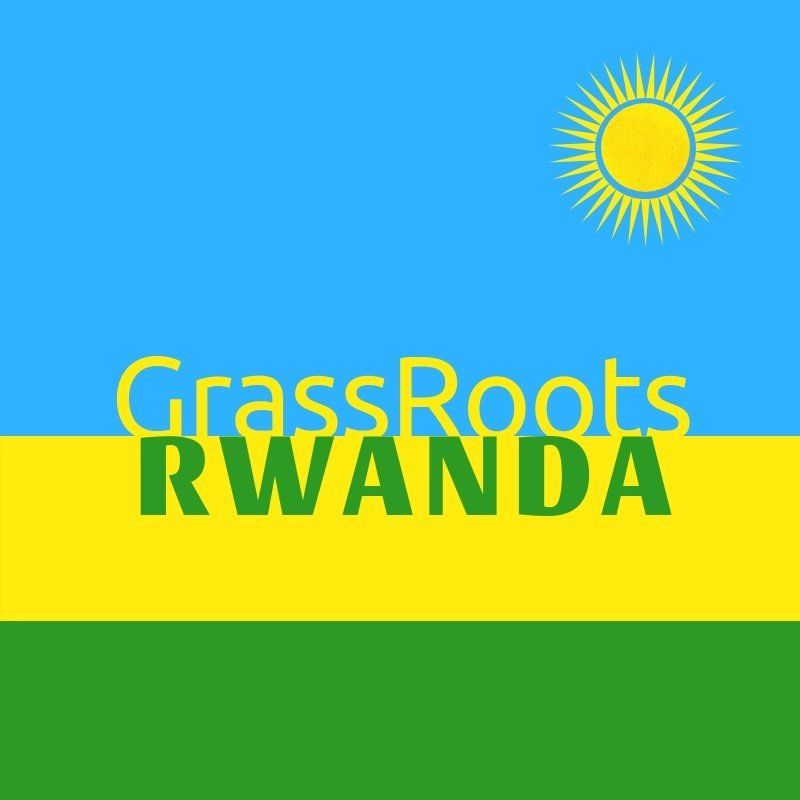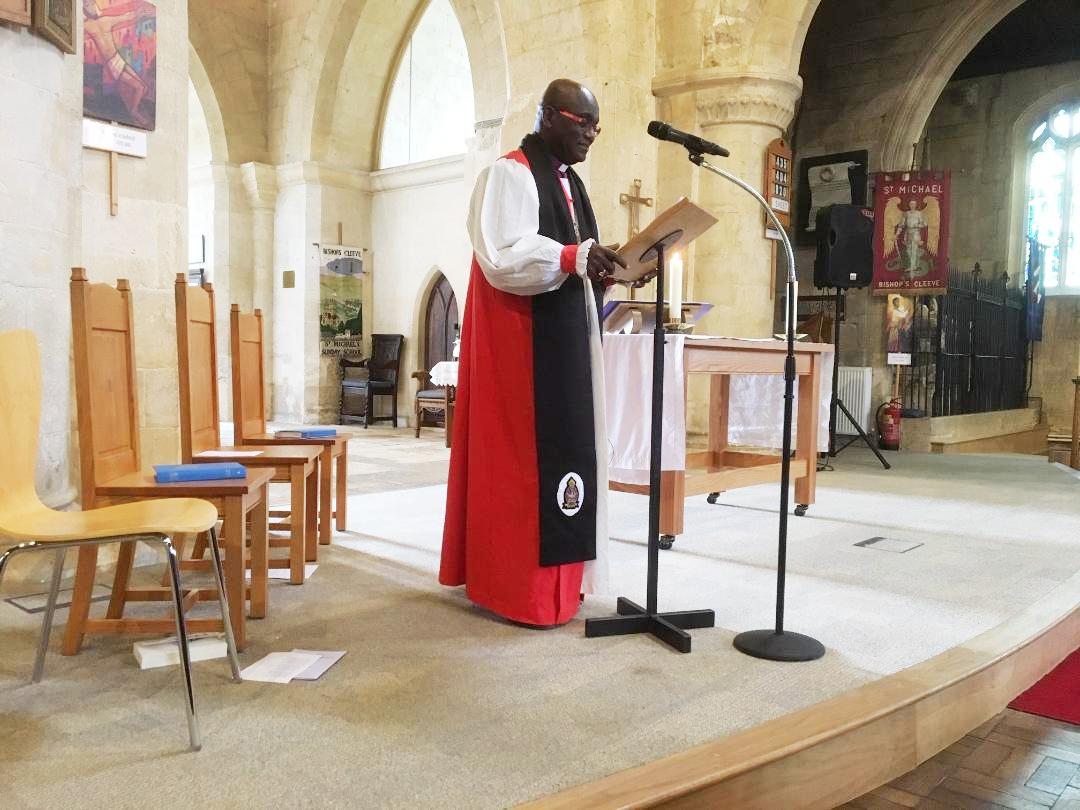Past Diocesan Support Projects
Here are some of the areas we have successfully supported in the Diocese of Shyogwe.
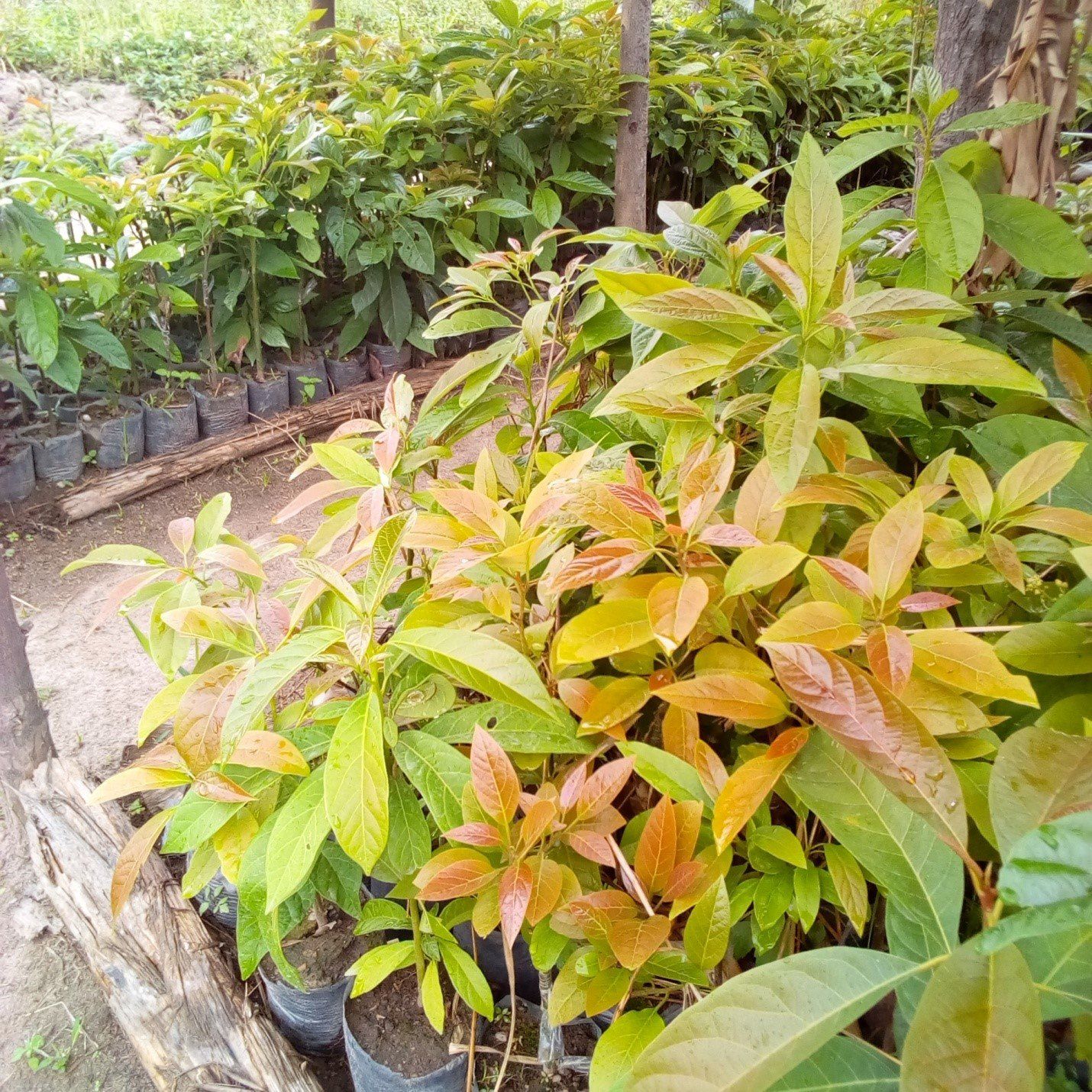
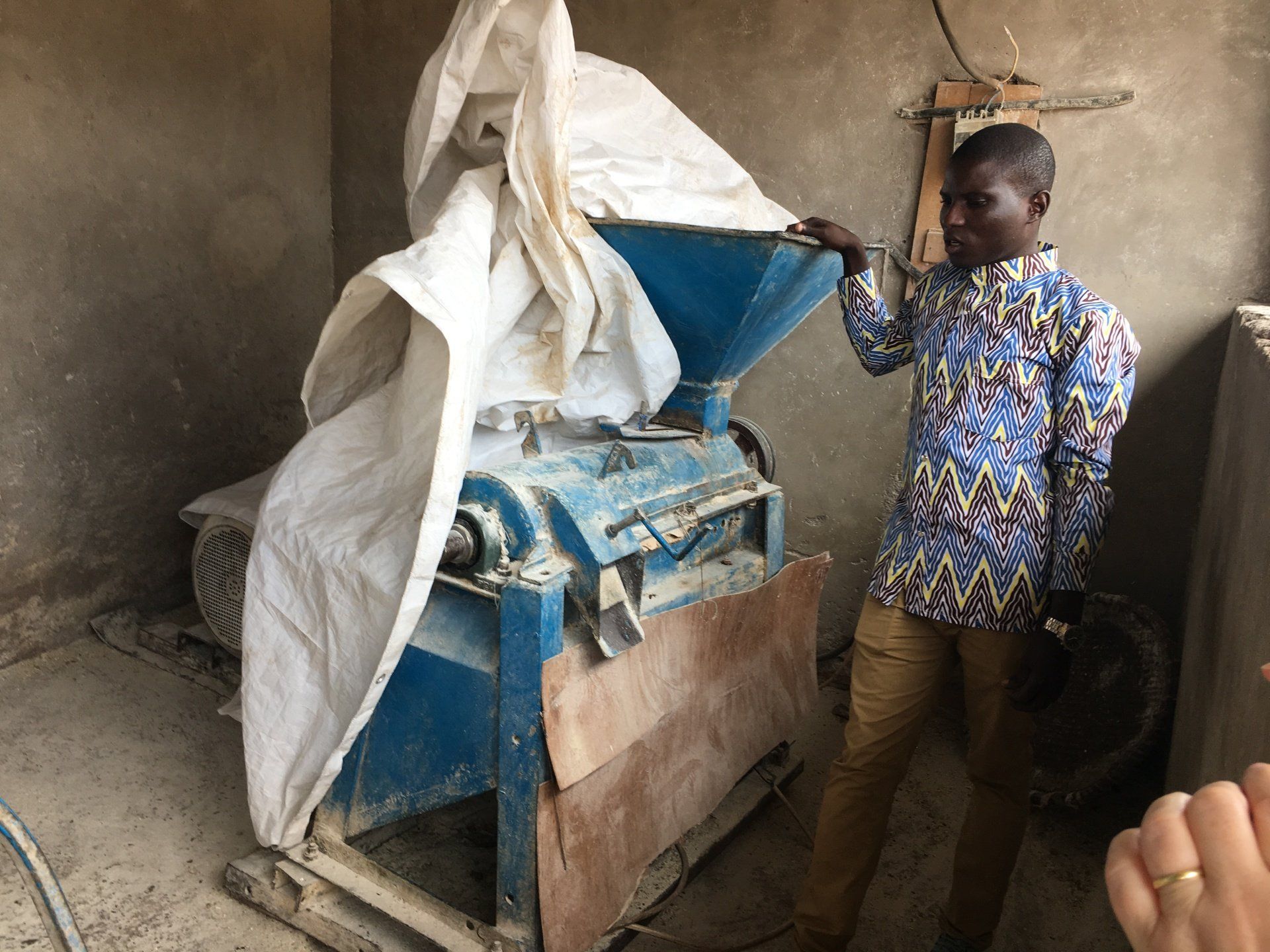
Diocesan Farm at Mbayaya
Mbayaya lies about an hour’s drive south of the main road linking Kigali and Muhanga (Giterama), which is itself some 60km west of the capital. It is therefore remote and noticeably hotter as one is descending towards the river valleys of central Rwanda.
Here the Diocese owns a pilot farm consisting of roughly 11 hectares. From afar this is a picturesque property of fields descending to a small river valley, which in turn is irrigating rice paddies. However, on closer inspection the farm is beset from all the problems of smallholdings the world over that rely on paid labour. There are insufficient funds from cash crops to make the farm pay as a going concern.
Faced with this, the Diocese has decided to change the ‘business plan’ radically. It has recently received from Government ‘blight resistant’ cassava seedlings to cultivate. The original batch must be distributed to the poor in the surrounding area but not before second generation plants are cultivated. These can then be sold at a profit. To help allay costs the Diocese has also introduced a private/church cooperative so that individuals can share in the venture. Interspersed with the cassava the cooperative is also growing beans and for a longer-term low maintenance approach avocado and mango trees have been planted. In three years or so these fruit trees should dominate the landscape and provide bulk produce for food processing plants in Butare. The Diocese has asked the Trust for funds to help with cultivation costs as the farm changes direction so that a greater percentage of profits may be retained by the church instead of joint ventures.
The milling function is still carried out at the farm. Approximately 45 tons of maize is ground and then distributed to the shop in Ruhanga and onwards to church schools. Bishop Jered considers this to be the centre of its activity. Nevertheless, this activity is hampered by a lack of reliable and reasonably costed transport.
Despite their recent problems with crop viruses, we were pleased to see fresh plantations of a new strain of cassava and pineapples growing. Local farmers are encouraged to come to the farm for a day’s training free of charge and to introduce new ideas into the agriculture system. They currently have about 50 farmers coming each month.
Rev Amos shared with us his vision for the future of the farm. He is hoping to introduce chickens from the Netherlands at a cost of 300RF each. These chickens are larger and better at egg production and able to cope with the Rwandan climate. In order for this to go ahead, Amos would like an egg incubator which would need to be powered by two solar panels.
Bee keeping was introduced in September 2016 for honey production and they are aware that more flowers need to be grown to sustain this new initiative. Amos showed us some land acquired near the farm which he acquired to turn into a tree plantation, growing avocado and mango saplings which they would distribute to areas for food production and to combat soil erosion. Vouchers for the saplings are available from the Trust or from our website. To date, £2,000 has been sent out and the nursery has started.
Bishop Jered Kalimba visits the UK
April 2019: The Chairman was delighted to welcome the Bishop of Shyogwe to his home and church. Bishop Jered Kalimba spent his time in the UK visiting Bishop's Cleeve, and the many other parishes that support him through the GrassRoots Rwanda Trust.
He visited Hereford Parish who support Rugendabari; Marchwood who support Nyurgugenge; Talbot Heath School who support Hanika and of course Bishop's Cleeve who support Giterama Parish. He also visited Dorridge who support generally, and of course, David Dale who started the Trust in 1995.
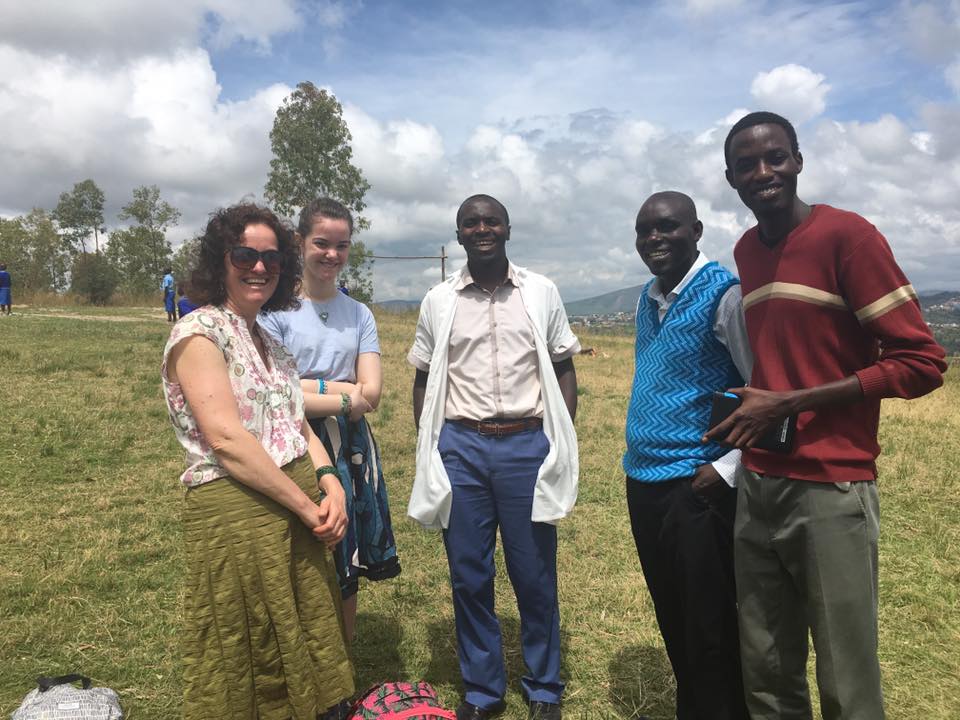
Pastors' Savings and Credit Scheme
Thank you to those who have contributed so generously to this project. We have now reached our target of £15,000 and the scheme is working well. This is a micro finance scheme available to pastors who need access to small loans.
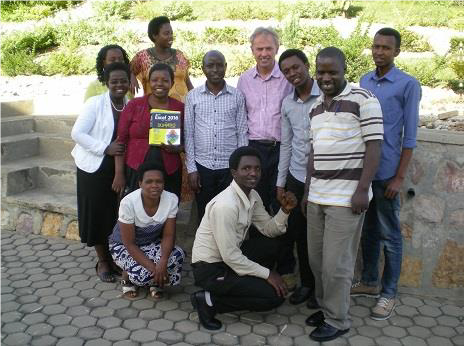
Accountants' Training Scheme
As requested by Zibrie, the diocesan accountant, Trustee Peter prepared some accountancy training. He spent a day with the accountants going through the basics of excel and furthering relationships with the accountants which he can develop over the next few months.
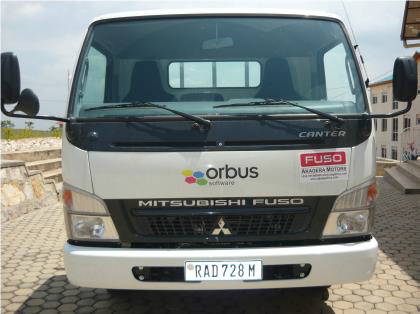
Truck
We are most grateful to Orbus Software who have completely funded the purchase of a Mitsubishi truck which will enable the Diocese to transport all sorts of things from maize for school kitchens, materials for Mother’s Union sewing groups, and iron beds and furniture made by the youth training centres.
Donate
Donations of any amount are always welcome to support our work in Rwanda.
Every penny donated goes to helping the people of Shyogwe Diocese.

